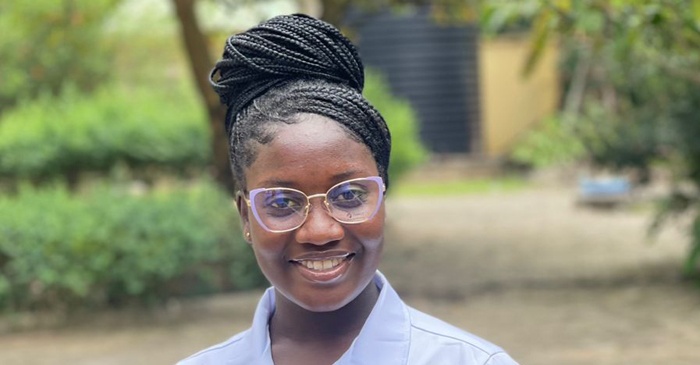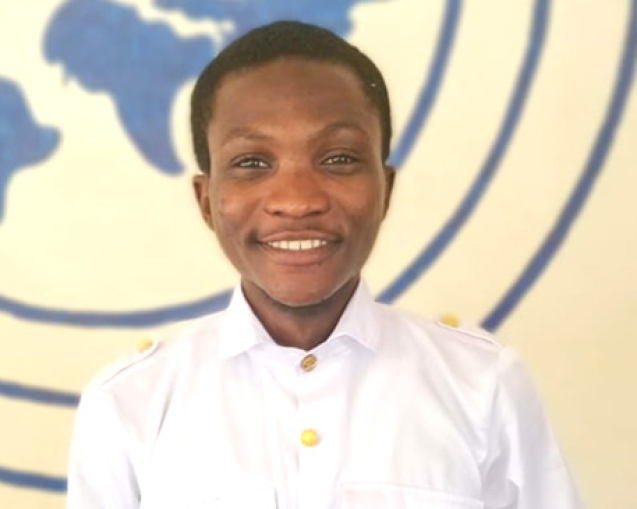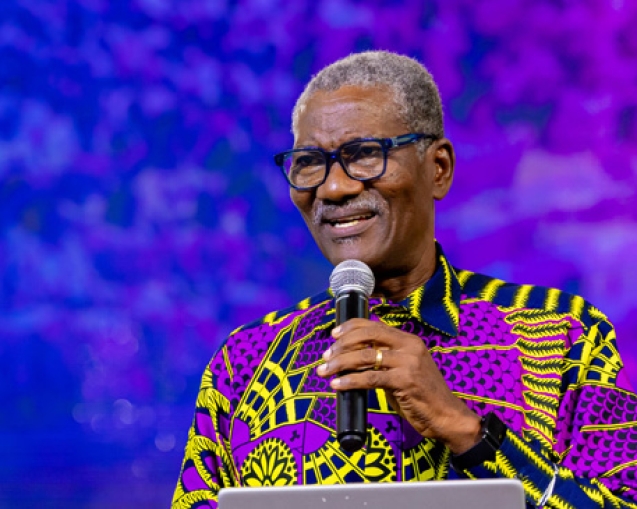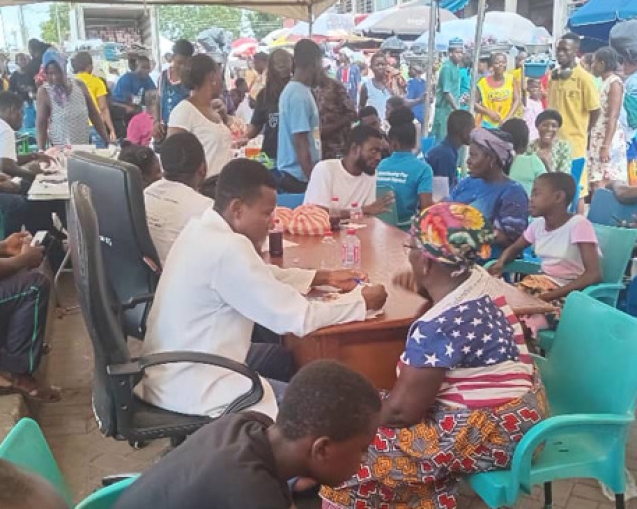What does it mean to live a life worthy of your calling? This statement transcends having a career or performing your responsibilities. Living a life worthy of your calling involves embracing the purpose for which you were created and walking in alignment with it daily. It means understanding your unique gifts, talents, and responsibilities and using them to serve others and glorify God. It is about being intentional in every action or decision you take, ensuring that every moment is aligned with your inner mission to serve humanity and honour God. Such a life demands discipline, humility, and faithfulness. It is a life of purpose, where everything you do, whether seen or unseen, becomes a testament to a higher calling.
As a nurse, you are called to serve others in their most vulnerable moments, embodying compassion, care, and hope. This calling is not just a profession but a divine purpose, rooted in God’s love and mission for humanity. The Bible reminds us in Ephesians 4:1: ‘I urge you to live a life worthy of the calling you have received.’ This verse sets the foundation for understanding how to align our daily work with God’s greater plan.
Understanding Your Calling as a Nurse
Nursing is a unique vocation that blends science and humanity. It mirrors Christ’s ministry of healing and compassion. As Jesus said in Matthew 25:40: ‘Truly I tell you, whatever you did for one of the least of these brothers and sisters of mine, you did for me.’ Every wound you dress, every patient you comfort, and every life you save reflects the heart of Christ.
During my internal clinicals at the Korle Bu Teaching Hospital Emergency Unit, I encountered an experience that deeply shaped my understanding of what it means to live a life worthy of my calling. On a Monday, the first day of my rotation in the emergency department, I met a woman whose condition was critical. Despite medical interventions, her health seemed to worsen each day.
By Wednesday morning, while attending to a patient near her bed, she called me over. I finished my task and approached her. She held my right hand firmly, tears streaming down her face, and began sharing her fears. She told me how her condition was deteriorating, how depressed she felt, and how she was losing hope. Her words were heavy, but what struck me most was her last request: ‘Aunty nurse, please pray for me.’
At that moment, I froze and didn’t know what to do or say. So, I gently told her, ‘Mummy, please let me use the washroom and come back to you.’ My heart raced with confusion and self-doubt on my way to the washroom. I couldn’t understand why she chose me, a young student nurse, to pray for her. I questioned whether I had the strength or wisdom to meet her spiritual needs. In my uncertainty, I called my mother and shared everything with her. She listened, prayed with me, and encouraged me to return to the woman and pray with her.
With a mixture of courage and faith, I went back, held her hands, and prayed. After the prayer, she looked at me with a glimmer of hope and asked if I could pray with her every morning when I arrived and before I left for the day. I agreed, sensing that this was not just a professional obligation but a divine assignment.
The following morning, Thursday, I prayed with her as promised. Later that day, she needed to undergo a scan and an X-ray. She specifically requested that I accompany her, and my in-charge approved. The queue was lengthy, and I spent my entire shift with her, pushing her wheelchair and ensuring she was comfortable. By the time we returned, she looked at me and said, ‘I feel stronger today than I did yesterday.’ With gratitude, I replied, ‘We bless God.’
Friday marked my last day at the unit. That morning, I prayed with her again, knowing it would be my final prayer with her during my clinical practice. An hour before my shift ended, her husband arrived. She introduced me to him, and he expressed his heartfelt gratitude for the care and prayers I had offered. Before I left, she took my number and assured me she would stay in touch, though I never heard from her again.
Reflection
This experience reminded me of the profound impact of nursing beyond physical care. It taught me the importance of being spiritually present for patients and the privilege of partnering with God to bring hope and healing. As nurses, we are not only caregivers but vessels of compassion and faith, called to serve others in their most vulnerable moments.
Philippians 2:13 says, ‘For it is God who works in you to will and to act in order to fulfill his good purpose.’ In that moment, God used me despite my doubts and insecurities to touch a life in need. It is a reminder that living a life worthy of our calling means saying, ‘Yes,’ to God’s purpose, even when we feel unprepared.
Through prayer, faith, and service, we can bring healing not only to the body but also to the soul, living out the true essence of our calling as nurses.
Conclusion
So, brothers and sisters, aunties and uncles, mummies and daddies, the theme for the year 2025, ‘Unleashed to Live a Life Worthy of Your Calling,’ is not meant for nurses alone, though my earlier message focused on them. This theme applies to people from all walks of life, identified by the uniform, attire, or vocation they represent whether as a minister, politician, policeman, soldier, farmer, hawker, lawyer, teacher, plumber, hairstylist, or any other profession.
In the same way, every Christian has a unique ‘attire’ to wear, and that is ‘HOLINESS.’ Holiness is the distinguishing mark of a kingdom carrier. As Christians, we are called to live lives that reflect our beliefs, aligning our actions and behaviours with God’s standards.
Let us put on our spiritual ‘uniform’ of holiness and carry it into every sphere of our lives. By doing so, we fulfill our calling to influence and impact our surroundings for God’s kingdom, living out our faith in a way that honours Him and transforms the world around us.
Written by Addo Debora, Pentecost University


















